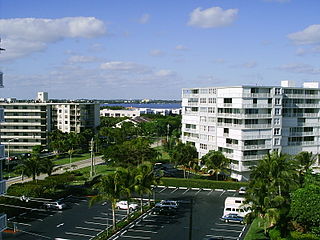Last Update: 2/9/23
Florida law has long recognized that there are times when a Florida landlord will be responsible to a Florida tenant for injuries sustained by the tenant, especially where the tenant is the victim of crime. These are crimes that occur anywhere on the leased property (inside the tenant’s unit or home, in a parking lot, in a garage, at the pool area, etc.) and regardless of whether the property is an apartment complex, condo, townhouse or single-family home.
A Florida landlord may be held legally responsible for monetary damages (including pain and suffering, emotional distress, etc.) to the crime victim tenant regardless of the self-serving language that the landlord may have inserted into the lease.

South Florida is filled with apartments and condo rental units and these tenants expect their landlord to provide safe conditions in their home and common areas.
A Tenant & Rape Victim Sues Landlord and Wins: Example of a Florida Court Case Involving Negligent Security By A Landlord
For instance, back in 1981, the Florida Supreme Court declined to review the decision made by the Third District Court of Appeals in Ten Assocs et al. V. McCutchen, 398 So.2d 860 (Fla 3d DCA), petition for rev denied, 411 So.2d 384 (Fla. 1981). In that case, the tenant, Mildred McCutchen, lived in a 4-story apartment complex called the West Club Apartments which was located in a high-crime area of Miami.
McCutchen told the court that one of the reasons she felt safe moving there was because West Club advertised two on-site security guards on a 24-hour basis, and that before she signed her lease she asked the landlord if the place was safe, and he told her yes, they had security guards.
Sadly, Ms. McCutchen was raped in her apartment after the rapist gained access to her home through a window; no security guard showed up to help her even while another tenant screamed for a guard to come and help Ms. McCutchen. The sole guard who was on duty at the time had been taken to task twice for poor job performance, and it was known that often there was only one guard on duty at the complex and that guards were known to hang out in their apartments when they were supposed to be protecting the place.
The tenant crime victim sued the landlord and won on a legal argument of the landlord’s failure to provide adequate security (negligent security) and the landlord’s failure to warn her that there was a risk someone could enter the apartment through a window. She was awarded $76,000 (in 1981 dollars, this is approximately $185,000 adjusting for inflation).
Florida Residential Landlord and Tenant Act: Duty to Provide “Safe Conditions”
The Florida Legislature has passed specific statutes that protect tenants in these situations. Adopting a version of the law proposed by the National Conference of Commissioners on Uniform State Laws, Florida now has the Florida Residential Landlord and Tenant Act.
This law, among other things, requires landlords to keep residential common areas in a “safe condition.” Florida Statutes Section 83.51(2)(a)2,3.
Therefore, for a renter in Florida living in an apartment complex, condo, townhouse, or another rental unit, this law requires a landlord to take steps to protect a tenant, which includes preventing the tenant from becoming a crime victim. A Landlord not only has a duty to provide safe conditions in a tenant’s home but also in common areas.
According to case law, some steps a landlord should take can include providing adequate lighting, performing background checks on all tenants and employees, and, in some instances, hiring full-time or part-time security.
If a landlord fails in these duties and a tenant is hurt during the commission of a crime (including rape), then the landlord may be responsible for money damages to that tenant under Florida’s negligent security law.
What Should You Do?
A good piece of advice if you are a sexual assault victim and you are a tenant in an apartment complex, is to speak with an experienced personal injury lawyer before you file a claim to learn about some of the issues that can arise with these claims, including the type of evidence needed to prove a claim and the type and amount of damages you can recover. Most personal injury lawyers, like Alan Sackrin, will offer a free initial consultation (over the phone or in person) to answer your questions.
Related:
_______________
 Do you have questions or comments? Then please feel free to send Alan an email or call him now at (954) 458-8655.
Do you have questions or comments? Then please feel free to send Alan an email or call him now at (954) 458-8655.
If you found this information helpful, please share this article and bookmark it for your future reference.
